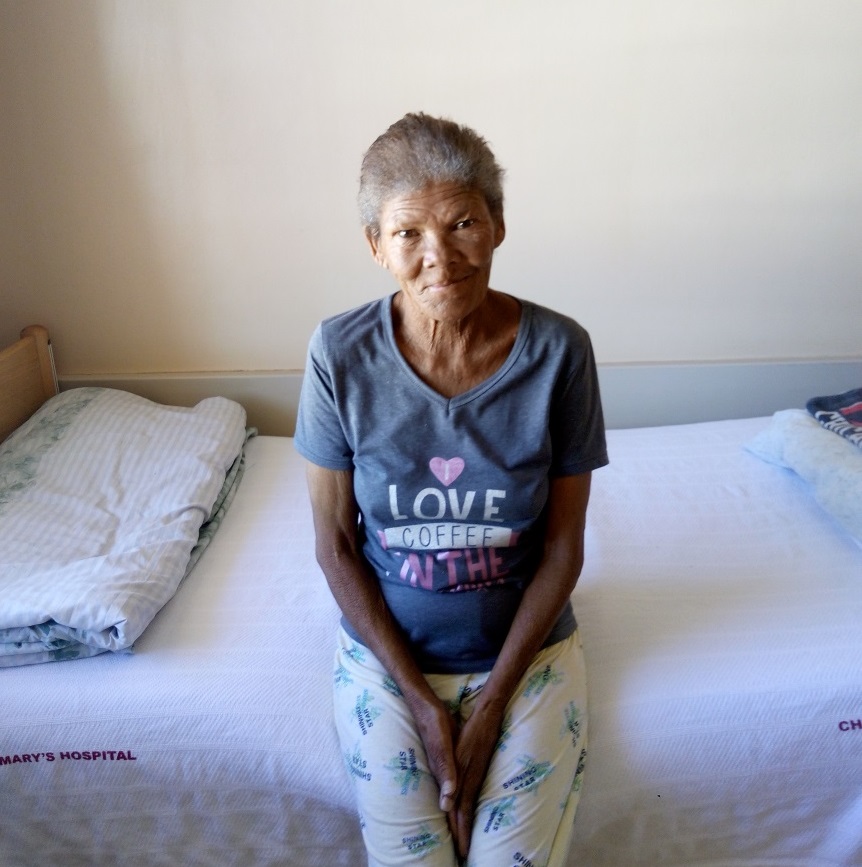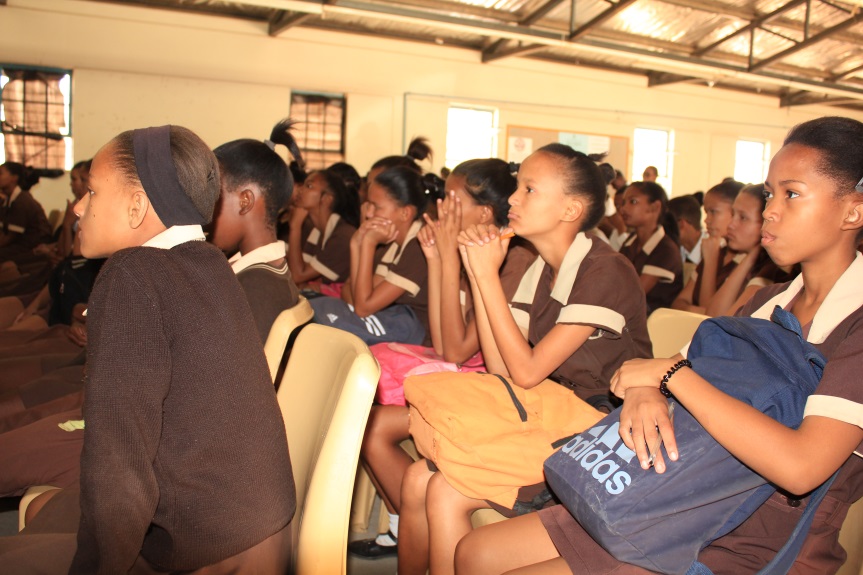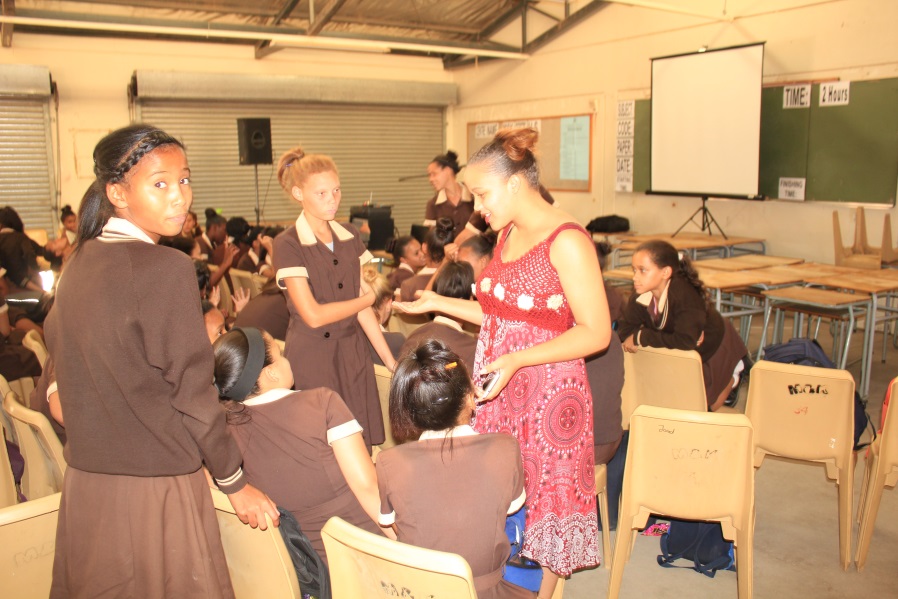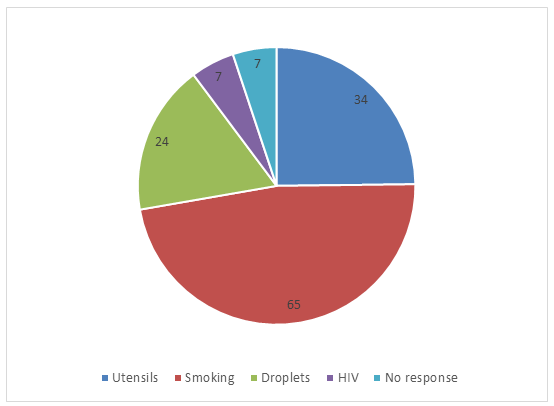Theresia Cloete was diagnosed with tuberculosis (TB) in 2002. She was put on treatment but after four months stopped taking her TB medication. Last year, she was diagnosed with drug-resistant TB.

Like Cloete, many TB patients stop taking their life-saving medication before they are cured.
She is now one of eight in-patients waiting for stabilization before being discharged to Directly Observed Treatment (DOT) points. Cloete shared her experience with other TB patients during a screening of Lucky Specials at St. Mary’s Hospital at the Rehoboth Health District.
“I saw how my lungs got destroyed by not finishing my tablets the last time. I have learned from this mistake. I need to take my medicine as the nurses tell me to. I will not make the same mistake again. I was too sick.”
Several screenings of Lucky Specials, produced by Management Sciences for Health with support from USAID, were among the activities that took place during TB Awareness Week (October 24–November 6, 2017). The USAID-funded Systems for Improved Access to Pharmaceuticals and Services (SIAPS) Program in Namibia distributed copies of the film to the Ministry of Health and Social Services, nongovernmental organizations that implement health programs, and tertiary education institutions that teach health sciences.
During TB Awareness Week, another USAID implementing partner, KNCV Challenge TB, presented the film to 242 people, including 46 patients at St. Mary’s Hospital, 39 members of the United Reformed Church, 137 eighth-grade pupils and six teachers at M&K Gertze High School, and 14 health care workers at Rehoboth Health Center.
The objectives of the screenings were to provide accurate and up-to-date information regarding TB; engage communities by reinforcing key messages on TB; identify and address common myths and misconceptions regarding TB; and enrich health care workers’ knowledge on how to improve TB management.
Cloete enjoyed watching Lucky Specials and identified with Mandla (Oros Mampofu), who stops taking his medication in the movie. In Cloete’s case, she was accused of theft and risked detention. After this event, she started abusing alcohol. A feeling of dizziness, which is a side effect of TB medication, was the final straw for her to stop taking her medication, despite serious consequences for her health.

Karin Husselmann, KNCV Challenge TB’s TB/HIV nurse mentor, facilitated the screenings, during which viewers were asked questions such as: What is your understanding of the TB infection? How can one prevent the development of TB? Can you get TB by sharing utensils with or by hugging/touching a patient with TB?
According to Husselmann, the discussions that ensued after the screenings helped the different audiences appreciate how medicines work and what gives rise to drug resistance; understand stigma and discrimination; and identify signs and symptoms of TB, as well as how they can help the community understand the disease and the importance of asking for early help.

A preassessment of the M&K Gertze High School students’ knowledge of TB indicated that misconceptions about the spread of TB still exist. While the majority of the students knew that coughing for more than two weeks is a common sign of TB, 30% incorrectly thought that sneezing and earaches were also signs, 25% said TB is not curable, and 43% knew that special medicine is needed to treat TB.
Husselmann believes that the general community has basic knowledge on TB, but the belief that the disease only affects certain people “catches them off guard” when they contract TB.
“We know these things (basic facts), but we believe that they do not concern us as we are fortunate. We therefore don’t think about it or give it attention,” said Husselmann, quoting one of the viewers.
According to 2015 statistics, Namibia is among 30 high-burden countries, recording 12,000 new TB cases every year. With a prevalence rate of 489 per 100,000, TB is a major public health problem in the country. With such a high prevalence rate, it is imperative that people have accurate information about the disease.

Husselmann said it was possible that Namibia’s health education activities do not reach all people in the communities, but all children need to be continuously educated about TB as they grow up.
“Sometimes we miss them and they grow up to be unaware of TB and other health issues. We therefore need to spend enough time and effort to educate people through various platforms, including schools,” she said.
To improve awareness levels, Husselmann suggests improving how, where, and to whom information is given; liaising with other institutions, such as banks, to show TB messages as clients wait to be served; encouraging TB patients to share their stories using online platforms; and working with nongovernmental organizations to produce local health educational films that are relevant to the Namibian setting.
The authors acknowledge the collaboration and contribution of KNCV Challenge TB TB/HIV Nurse Mentor, Karin Husselmann.
Compiled by Wezi Tjaronda and Evans Sagwa

